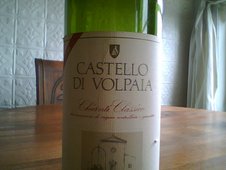"Prohibition," the new six-hour, three-part documentary by Ken Burns and Lynn Novick, premieres tonight on PBS, with the second and third parts airing on Monday and Tuesday.
That Prohibition, which was repealed in 1933, is far from a dead issue in the U.S. was aptly illustrated just weeks ago when California struck down an age-old law that prevented bartenders from creating infusions. Loopy laws like this have lingered for decades on state government books, all part of the long, irritating hangover perpetrated by the Volstead Act.
"Sunday blue laws date back to the colonial era," said Ben Jenkins of the Distilled Spirits Council of the United States, which devotes a lot of time, money and lobbying to junking Prohibition-born laws. "But keep in mind Prohibition outlawed all alcohol in the United States. When Prohibition was repealed in 1933, the 21st Amendment gave states the power to regulate alcohol. As states began making laws, as a practical matter most banned Sunday sales at that point." (They are called Blue Laws is because the Puritans in Massachusetts printed them on blue paper.)
Over the last ten years, states and localities have steadily been repealing Sunday bans across the country. Georgia was the latest state to roll back its Blue Law banning Sunday alcohol sales, becoming the 15th state since 2002 to pass such legislation. Pennsylvania is advancing a bill right now that would increase the number of stores the state allows to open on Sundays. Other states likely to repeal Sunday sales bans in upcoming legislative sessions include Connecticut, Texas, Minnesota, Indiana, Tennessee, Oklahoma and West Virginia.
Another leftover from Prohibition are state bans against liquor sales on election days. Delaware and Idaho dropped their bans in 2008; Utah in 2009; Indiana in 2010; and West Virginia this year.
Tennessee recently became the latest state to repeal its statewide ban against liquor tastings by passing legislation allowing tasting events at restaurants, bars and liquor stores. States likely to repeal tastings bans in 2011 or 2012 legislative sessions, include North Carolina, Rhode Island, West Virginia, and Wisconsin.
The only downside to this trend: reporters such as I will soon be robbed of juicy stories about the ridiculous enforcement of weird, antiquated liquor laws.
As for the documentary, Burns and Novick do a nice job with the subject, though the telling is a bit sedate and, um, sober. The filmmakers deploy the patented Burns mix of still photographs, well-lit talking heads, celebrity voice-overs and chapter-designating titles. The episodes are nicely divided into "A Nation of Drunkards," "A Nation of Scofflaws" and "A Nation of Hypocrites." It's engrossing enough, but could have used a little more fizz, given the subject. This might have been accomplished by including a few liquor history experts along with the usual assortment of academic historians and stentorian authors. (What, Ken, don't you have my number?) And surely there are more inventive devices than the dramatic, close-up pourings of beer and whiskey into glasses. Saw that coming a mile away.
For Tea Party advocates out there, fair warning: Burns and Novick draw a clear and politically charged line between the fate of the unbending, overreaching, intolerant temperance forces and today's political action groups. If the Tea Party didn't borrow the Anti-Saloon League's playbook, then they're doing a nice imitation.



No comments:
Post a Comment